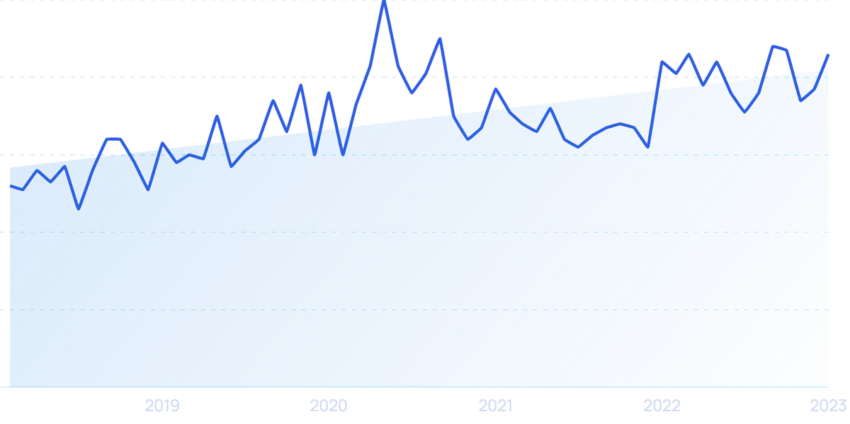TL;DR Summary of The Best Market Analysis Tools for 2024
Optimixed’s Overview: Top Market Research Platforms to Empower Strategic Business Decisions in 2024
Comprehensive Insights into Leading Market Analysis Solutions
Conducting effective market analysis requires selecting tools that align with your specific research goals. This overview highlights key platforms that excel in trend discovery, competitor intelligence, consumer behavior analytics, and qualitative data gathering.
Emerging Trend Identification with Exploding Topics
- Features: Extensive Trends Database, Projects for detailed analysis, Trend Analysis, and Meta Trends for niche insights.
- Use Cases: Quickly find and assess emerging products, brands, and keywords with historical Google Search volume data.
- Pros: AI-powered, human-verified trends; user-friendly interface; free and premium plans available.
- Cons: Not a breaking news source; lacks dedicated research consultants.
- Pricing: Plans start at $39/month billed annually with a two-week free trial.
Competitive Market Intelligence with Semrush and Crayon.co
- Semrush: Offers deep insights into SEO, PPC, backlinks, social media, and content marketing strategies. Ideal for analyzing competitors’ digital marketing tactics and market demographics.
- Crayon.co: AI-driven tracking of competitor marketing changes, hiring, product launches, and customer reviews with team collaboration features.
- Pros: Comprehensive competitive data, historical trends, and organized insights.
- Cons: Semrush requires subscription; Crayon may include features beyond market analysis, designed primarily for sales teams.
Financial and Market Size Data via CB Insights and Owler
- CB Insights: Specializes in tech company financials, valuations, IPOs, and market sizing with geographic filters.
- Owler: Provides revenue estimates, funding data, executive movements, and competitor alerts based on crowdsourced and public data.
- Pros: Access to exclusive private company data and broad market signals.
- Cons: CB Insights is enterprise-focused and pricey; Owler’s crowdsourced data may lack precision.
Geographic and Consumer Behavior Analysis with Census Business Builder
- Features: Detailed U.S. consumer spending, demographics, and population data by location.
- Pros: Free, accurate, and annually updated data.
- Cons: Limited to brick-and-mortar market research and raw data requires interpretation.
E-Commerce and Consumer Feedback Tools: Jungle Scout, Reviews.ai, and Brandwatch
- Jungle Scout: Amazon-focused product demand, pricing, and profitability analytics with beginner-friendly features.
- Reviews.ai: AI-powered analysis of thousands of customer reviews to uncover product pain points and market gaps.
- Brandwatch: Tracks online discussions and brand mentions across multiple platforms to gauge sentiment and identify market needs.
- Pros: Valuable data extraction from consumer activity and sentiment trends.
- Cons: Platform-specific limitations and potential biases in review authenticity.
Advanced Qualitative Research: Remesh and Respondent
- Remesh: Real-time large-scale live polls with AI analysis to validate product concepts and capture nuanced audience opinions.
- Respondent: Facilitates one-on-one interviews with targeted B2B professionals to gain in-depth market insights.
- Pros: Dynamic data collection methods offering richer qualitative understanding.
- Cons: Limited applicability for niche B2B audiences (Remesh); potential respondent quality variability (Respondent).
Starting Your Market Analysis Journey
Market analysis need not be cumbersome or data-overloaded. By selectively utilizing these tools, you can efficiently gather relevant market intelligence tailored to your unique objectives. Begin with free resources like Exploding Topics to uncover emerging trends and scale up to premium platforms for deeper competitive and consumer insights. Leveraging the right combination of these tools will enhance your investment decisions, product development, and competitive positioning in 2024 and beyond.
